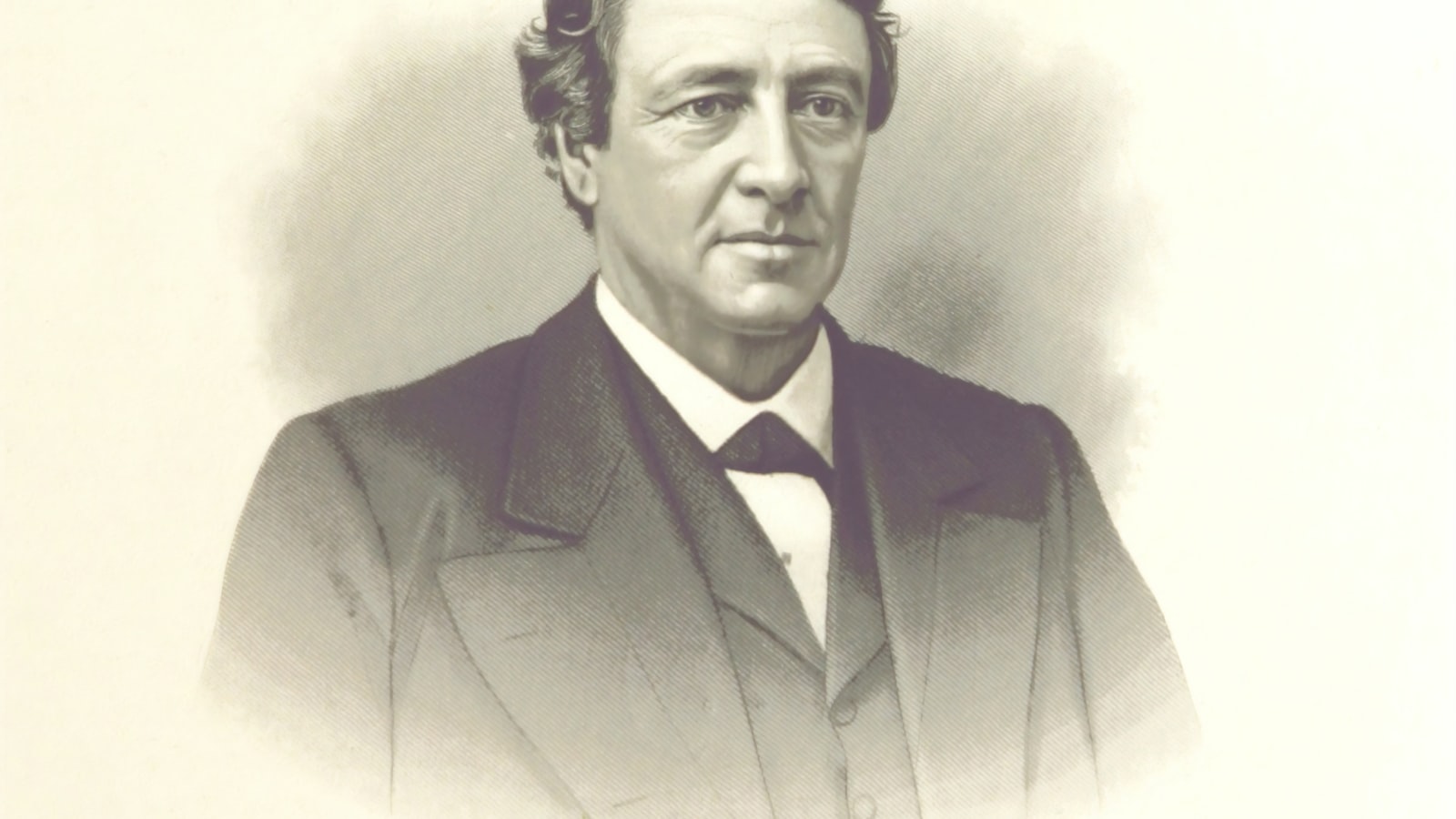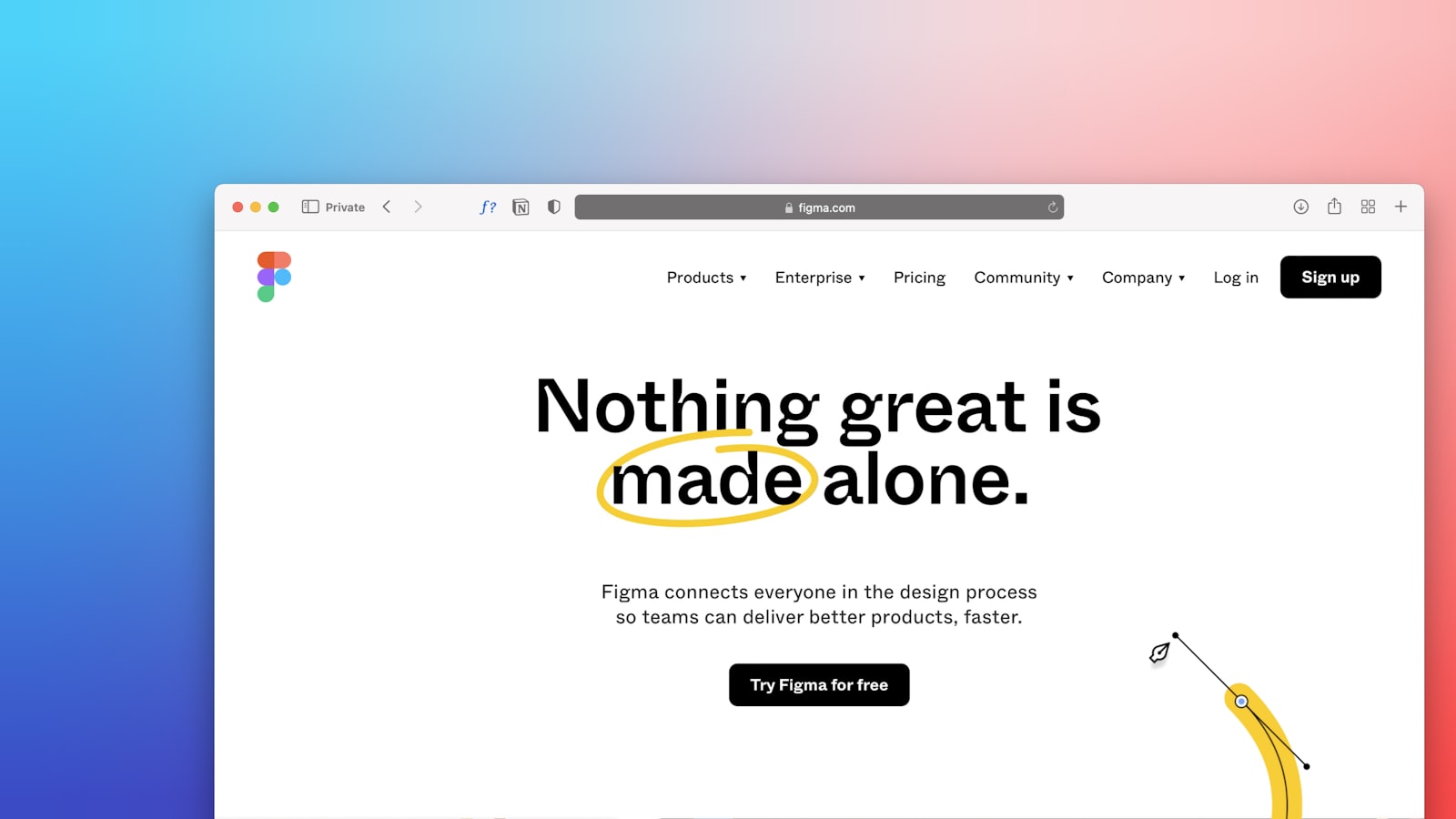The Role of a Marketing Consultant- Responsibilities, Skills, and Benefits
The Role of a Marketing Consultant- Responsibilities, Skills, and Benefits
The Role of a Marketing Consultant- Responsibilities, Skills, and Benefits
Discover what a marketing consultant does, their key responsibilities, essential skills, and the benefits they bring to your business.
Discover what a marketing consultant does, their key responsibilities, essential skills, and the benefits they bring to your business.



Introduction
Ever wondered, What does a marketing consultant do? Well, you're in the right place. Think of a marketing consultant as the Sherlock Holmes of the business world—minus the deerstalker hat. They're the detectives who solve the mystery of why your marketing isn't quite hitting the mark.
In this article, we’ll uncover the key responsibilities, essential skills, and undeniable benefits that a marketing consultant brings to the table. Whether you're a startup or a seasoned enterprise, understanding this role could be the game-changer you need.
What is a Marketing Consultant?
Definition and overview: A marketing consultant is a seasoned expert who helps businesses develop and implement effective marketing strategies to drive growth and revenue.
Comparison with other marketing roles: Unlike a Marketing Coordinator who handles day-to-day tasks, or a Marketing Manager who oversees a team, a marketing consultant provides strategic insights and high-level guidance.
Ready to dive into the world of marketing consultancy? Let's go!
Key Responsibilities of a Marketing Consultant
Understanding Business Goals
Analyzing company objectives
Setting short-term and long-term goals
One of the primary tasks of a marketing consultant is to understand the business goals of the company. This involves analyzing company objectives, which can range from increasing brand awareness to boosting sales. Once the objectives are clear, the consultant helps in setting both short-term and long-term goals that align with these objectives.
Conducting Market Research
Identifying industry trends
Evaluating target market needs
Market research is another crucial responsibility. A marketing consultant must identify industry trends and evaluate the needs of the target market. This involves gathering data and insights that can guide the development of effective marketing strategies. For a deeper dive into market research techniques, check out our guide on creating and leveraging B2B buyer personas.
Developing and Implementing Marketing Strategies
Crafting marketing plans
Executing campaigns
Once the research is done, it's time to develop and implement marketing strategies. This involves crafting detailed marketing plans and executing campaigns that align with the business goals. Whether it's a social media blitz or a content marketing strategy, the consultant ensures that every campaign is well-planned and executed to perfection.
Monitoring and Analyzing Campaign Performance
Gathering key metrics
Providing feedback and optimization
After the campaigns are launched, the work isn't over. A marketing consultant must monitor and analyze campaign performance by gathering key metrics. This data is then used to provide feedback and optimize future campaigns. For more on how to build a high-performing marketing team to support these efforts, visit our article on building a high-performing in-house marketing team.
Training and Advising Marketing Teams
Offering strategic advice
Conducting training sessions
Finally, a marketing consultant often plays a role in training and advising the marketing team. This includes offering strategic advice and conducting training sessions to ensure that the team is well-equipped to execute the marketing strategies effectively. For insights on structuring your marketing team, check out our post on successful B2B marketing team structures.

Essential Skills for a Marketing Consultant
Analytical Skills
Data analysis and interpretation
Market research techniques
A marketing consultant must be a data whiz. Understanding data analysis and interpretation is crucial. This means diving into numbers, identifying trends, and making sense of complex data sets. Market research techniques are equally important. Knowing how to gather and analyze market data helps in crafting strategies that hit the mark.
Strategic Thinking
Planning and foresight
Identifying opportunities and threats
Strategic thinking is the backbone of effective marketing. A consultant needs to excel in planning and foresight. This involves setting clear, actionable goals and anticipating future trends. Additionally, identifying opportunities and threats is vital. This skill helps in navigating the competitive landscape and seizing the right moments to act.
Communication Skills
Writing proposals and reports
Presenting ideas effectively
Communication skills are non-negotiable for a marketing consultant. Writing proposals and reports is a daily task, requiring clarity and precision. But it doesn't stop there. Presenting ideas effectively is also key. Whether it's pitching to a client or leading a team meeting, the ability to convey concepts clearly and persuasively is essential.
Technical Proficiency
Familiarity with marketing tools (CRM, SEO, etc.)
Digital marketing expertise
In today's tech-driven world, technical proficiency is a must. Familiarity with marketing tools like CRM systems and SEO platforms is crucial. These tools streamline processes and provide valuable insights. Additionally, digital marketing expertise is indispensable. From social media to email campaigns, understanding digital channels and how to leverage them effectively sets a consultant apart.

For more insights on building a high-performing marketing team, check out our guide on how to build a high-performing in-house marketing team. And if you're looking to refine your marketing strategies, our article on developing a winning B2B search marketing strategy is a must-read.
Benefits of Hiring a Marketing Consultant
Expertise and Experience
Access to specialized knowledge
Proven track record
Hiring a marketing consultant means tapping into a wealth of specialized knowledge. These professionals bring years of experience and a proven track record of successful campaigns. They know what works and, more importantly, what doesn't. This expertise can be invaluable, especially for businesses looking to refine their strategies and achieve better results.
Objectivity and Fresh Perspective
Unbiased insights
Innovative ideas
Sometimes, being too close to a project can cloud your judgment. A marketing consultant offers unbiased insights and a fresh perspective. They can identify opportunities and challenges that might be overlooked by internal teams. This objectivity often leads to innovative ideas that can set your business apart from the competition.
Cost-Effectiveness
Flexible hiring (project-based, freelance)
Avoiding long-term employment costs
One of the biggest advantages of hiring a marketing consultant is the flexibility it offers. Whether you need help with a single project or ongoing support, consultants can be hired on a project-based or freelance basis. This flexibility allows you to avoid the long-term costs associated with full-time employees, making it a cost-effective solution for businesses of all sizes.

For more insights on how to choose the best marketing strategies and build a high-performing team, check out these articles:
How to Choose the Best B2B Marketing Company for Your Business
10 Successful B2B Marketing Team Structures to Inspire Your Organization
How to Create and Leverage B2B Buyer Personas for Targeted Marketing
Exploring the Career Landscape
Employment Scenarios
Working with Consulting Agencies: Joining a consulting agency can provide a structured environment with a steady stream of clients. Agencies often have established processes and resources, making it easier to focus on delivering results. Plus, you'll get to collaborate with a team of experienced consultants.
In-House Consulting Roles: Some companies prefer to have a marketing consultant on their payroll. This role involves working closely with the company's internal teams, providing tailored strategies and insights. It's a great way to gain deep knowledge of a single industry or business.
Freelancing and Building Your Own Business
Benefits and Challenges: Freelancing offers flexibility and the freedom to choose your clients and projects. However, it also comes with challenges such as inconsistent income, the need for self-discipline, and handling all aspects of your business, from marketing to accounting.
Steps to Start and Grow Your Consulting Business:
Identify your niche and target market.
Build a strong online presence through a professional website and active social media profiles.
Network with potential clients and industry peers by attending events and joining relevant online communities.
Offer valuable content, such as blog posts or webinars, to establish your expertise.
Collect testimonials and case studies to showcase your success.
Future Trends and Opportunities
Emerging Marketing Technologies: Stay ahead of the curve by embracing new technologies like AI-driven analytics, chatbots, and advanced CRM systems. These tools can provide deeper insights and automate repetitive tasks, allowing you to focus on strategy and creativity.
Industry-Specific Consulting Opportunities: As industries evolve, niche consulting opportunities arise. For instance, the rise of e-commerce has created a demand for consultants specializing in digital marketing strategies for online retailers. Identifying and capitalizing on these trends can set you apart from the competition.

For more insights on building a high-performing marketing team, check out our guide on how to build a high-performing in-house marketing team. If you're considering freelancing, our article on developing a winning SaaS growth strategy might be just what you need.
Conclusion
Recap of Key Points
Marketing consultants play a crucial role in understanding business goals, conducting market research, developing and implementing marketing strategies, monitoring campaign performance, and training marketing teams.
Essential skills for a marketing consultant include analytical skills, strategic thinking, communication skills, and technical proficiency.
The benefits of hiring a marketing consultant include access to specialized knowledge, objectivity, fresh perspectives, and cost-effectiveness.
Final Thoughts
If you're considering a career in marketing consulting, now is a great time to jump in. The demand for skilled consultants is growing, and the field offers numerous opportunities for professional growth and development.
For those looking to deepen their knowledge and skills, continuous learning is key. Consider exploring resources like how to choose the best B2B marketing company for your business and building a high-performing in-house marketing team to stay ahead in the game.

Introduction
Ever wondered, What does a marketing consultant do? Well, you're in the right place. Think of a marketing consultant as the Sherlock Holmes of the business world—minus the deerstalker hat. They're the detectives who solve the mystery of why your marketing isn't quite hitting the mark.
In this article, we’ll uncover the key responsibilities, essential skills, and undeniable benefits that a marketing consultant brings to the table. Whether you're a startup or a seasoned enterprise, understanding this role could be the game-changer you need.
What is a Marketing Consultant?
Definition and overview: A marketing consultant is a seasoned expert who helps businesses develop and implement effective marketing strategies to drive growth and revenue.
Comparison with other marketing roles: Unlike a Marketing Coordinator who handles day-to-day tasks, or a Marketing Manager who oversees a team, a marketing consultant provides strategic insights and high-level guidance.
Ready to dive into the world of marketing consultancy? Let's go!
Key Responsibilities of a Marketing Consultant
Understanding Business Goals
Analyzing company objectives
Setting short-term and long-term goals
One of the primary tasks of a marketing consultant is to understand the business goals of the company. This involves analyzing company objectives, which can range from increasing brand awareness to boosting sales. Once the objectives are clear, the consultant helps in setting both short-term and long-term goals that align with these objectives.
Conducting Market Research
Identifying industry trends
Evaluating target market needs
Market research is another crucial responsibility. A marketing consultant must identify industry trends and evaluate the needs of the target market. This involves gathering data and insights that can guide the development of effective marketing strategies. For a deeper dive into market research techniques, check out our guide on creating and leveraging B2B buyer personas.
Developing and Implementing Marketing Strategies
Crafting marketing plans
Executing campaigns
Once the research is done, it's time to develop and implement marketing strategies. This involves crafting detailed marketing plans and executing campaigns that align with the business goals. Whether it's a social media blitz or a content marketing strategy, the consultant ensures that every campaign is well-planned and executed to perfection.
Monitoring and Analyzing Campaign Performance
Gathering key metrics
Providing feedback and optimization
After the campaigns are launched, the work isn't over. A marketing consultant must monitor and analyze campaign performance by gathering key metrics. This data is then used to provide feedback and optimize future campaigns. For more on how to build a high-performing marketing team to support these efforts, visit our article on building a high-performing in-house marketing team.
Training and Advising Marketing Teams
Offering strategic advice
Conducting training sessions
Finally, a marketing consultant often plays a role in training and advising the marketing team. This includes offering strategic advice and conducting training sessions to ensure that the team is well-equipped to execute the marketing strategies effectively. For insights on structuring your marketing team, check out our post on successful B2B marketing team structures.

Essential Skills for a Marketing Consultant
Analytical Skills
Data analysis and interpretation
Market research techniques
A marketing consultant must be a data whiz. Understanding data analysis and interpretation is crucial. This means diving into numbers, identifying trends, and making sense of complex data sets. Market research techniques are equally important. Knowing how to gather and analyze market data helps in crafting strategies that hit the mark.
Strategic Thinking
Planning and foresight
Identifying opportunities and threats
Strategic thinking is the backbone of effective marketing. A consultant needs to excel in planning and foresight. This involves setting clear, actionable goals and anticipating future trends. Additionally, identifying opportunities and threats is vital. This skill helps in navigating the competitive landscape and seizing the right moments to act.
Communication Skills
Writing proposals and reports
Presenting ideas effectively
Communication skills are non-negotiable for a marketing consultant. Writing proposals and reports is a daily task, requiring clarity and precision. But it doesn't stop there. Presenting ideas effectively is also key. Whether it's pitching to a client or leading a team meeting, the ability to convey concepts clearly and persuasively is essential.
Technical Proficiency
Familiarity with marketing tools (CRM, SEO, etc.)
Digital marketing expertise
In today's tech-driven world, technical proficiency is a must. Familiarity with marketing tools like CRM systems and SEO platforms is crucial. These tools streamline processes and provide valuable insights. Additionally, digital marketing expertise is indispensable. From social media to email campaigns, understanding digital channels and how to leverage them effectively sets a consultant apart.

For more insights on building a high-performing marketing team, check out our guide on how to build a high-performing in-house marketing team. And if you're looking to refine your marketing strategies, our article on developing a winning B2B search marketing strategy is a must-read.
Benefits of Hiring a Marketing Consultant
Expertise and Experience
Access to specialized knowledge
Proven track record
Hiring a marketing consultant means tapping into a wealth of specialized knowledge. These professionals bring years of experience and a proven track record of successful campaigns. They know what works and, more importantly, what doesn't. This expertise can be invaluable, especially for businesses looking to refine their strategies and achieve better results.
Objectivity and Fresh Perspective
Unbiased insights
Innovative ideas
Sometimes, being too close to a project can cloud your judgment. A marketing consultant offers unbiased insights and a fresh perspective. They can identify opportunities and challenges that might be overlooked by internal teams. This objectivity often leads to innovative ideas that can set your business apart from the competition.
Cost-Effectiveness
Flexible hiring (project-based, freelance)
Avoiding long-term employment costs
One of the biggest advantages of hiring a marketing consultant is the flexibility it offers. Whether you need help with a single project or ongoing support, consultants can be hired on a project-based or freelance basis. This flexibility allows you to avoid the long-term costs associated with full-time employees, making it a cost-effective solution for businesses of all sizes.

For more insights on how to choose the best marketing strategies and build a high-performing team, check out these articles:
How to Choose the Best B2B Marketing Company for Your Business
10 Successful B2B Marketing Team Structures to Inspire Your Organization
How to Create and Leverage B2B Buyer Personas for Targeted Marketing
Exploring the Career Landscape
Employment Scenarios
Working with Consulting Agencies: Joining a consulting agency can provide a structured environment with a steady stream of clients. Agencies often have established processes and resources, making it easier to focus on delivering results. Plus, you'll get to collaborate with a team of experienced consultants.
In-House Consulting Roles: Some companies prefer to have a marketing consultant on their payroll. This role involves working closely with the company's internal teams, providing tailored strategies and insights. It's a great way to gain deep knowledge of a single industry or business.
Freelancing and Building Your Own Business
Benefits and Challenges: Freelancing offers flexibility and the freedom to choose your clients and projects. However, it also comes with challenges such as inconsistent income, the need for self-discipline, and handling all aspects of your business, from marketing to accounting.
Steps to Start and Grow Your Consulting Business:
Identify your niche and target market.
Build a strong online presence through a professional website and active social media profiles.
Network with potential clients and industry peers by attending events and joining relevant online communities.
Offer valuable content, such as blog posts or webinars, to establish your expertise.
Collect testimonials and case studies to showcase your success.
Future Trends and Opportunities
Emerging Marketing Technologies: Stay ahead of the curve by embracing new technologies like AI-driven analytics, chatbots, and advanced CRM systems. These tools can provide deeper insights and automate repetitive tasks, allowing you to focus on strategy and creativity.
Industry-Specific Consulting Opportunities: As industries evolve, niche consulting opportunities arise. For instance, the rise of e-commerce has created a demand for consultants specializing in digital marketing strategies for online retailers. Identifying and capitalizing on these trends can set you apart from the competition.

For more insights on building a high-performing marketing team, check out our guide on how to build a high-performing in-house marketing team. If you're considering freelancing, our article on developing a winning SaaS growth strategy might be just what you need.
Conclusion
Recap of Key Points
Marketing consultants play a crucial role in understanding business goals, conducting market research, developing and implementing marketing strategies, monitoring campaign performance, and training marketing teams.
Essential skills for a marketing consultant include analytical skills, strategic thinking, communication skills, and technical proficiency.
The benefits of hiring a marketing consultant include access to specialized knowledge, objectivity, fresh perspectives, and cost-effectiveness.
Final Thoughts
If you're considering a career in marketing consulting, now is a great time to jump in. The demand for skilled consultants is growing, and the field offers numerous opportunities for professional growth and development.
For those looking to deepen their knowledge and skills, continuous learning is key. Consider exploring resources like how to choose the best B2B marketing company for your business and building a high-performing in-house marketing team to stay ahead in the game.

Introduction
Ever wondered, What does a marketing consultant do? Well, you're in the right place. Think of a marketing consultant as the Sherlock Holmes of the business world—minus the deerstalker hat. They're the detectives who solve the mystery of why your marketing isn't quite hitting the mark.
In this article, we’ll uncover the key responsibilities, essential skills, and undeniable benefits that a marketing consultant brings to the table. Whether you're a startup or a seasoned enterprise, understanding this role could be the game-changer you need.
What is a Marketing Consultant?
Definition and overview: A marketing consultant is a seasoned expert who helps businesses develop and implement effective marketing strategies to drive growth and revenue.
Comparison with other marketing roles: Unlike a Marketing Coordinator who handles day-to-day tasks, or a Marketing Manager who oversees a team, a marketing consultant provides strategic insights and high-level guidance.
Ready to dive into the world of marketing consultancy? Let's go!
Key Responsibilities of a Marketing Consultant
Understanding Business Goals
Analyzing company objectives
Setting short-term and long-term goals
One of the primary tasks of a marketing consultant is to understand the business goals of the company. This involves analyzing company objectives, which can range from increasing brand awareness to boosting sales. Once the objectives are clear, the consultant helps in setting both short-term and long-term goals that align with these objectives.
Conducting Market Research
Identifying industry trends
Evaluating target market needs
Market research is another crucial responsibility. A marketing consultant must identify industry trends and evaluate the needs of the target market. This involves gathering data and insights that can guide the development of effective marketing strategies. For a deeper dive into market research techniques, check out our guide on creating and leveraging B2B buyer personas.
Developing and Implementing Marketing Strategies
Crafting marketing plans
Executing campaigns
Once the research is done, it's time to develop and implement marketing strategies. This involves crafting detailed marketing plans and executing campaigns that align with the business goals. Whether it's a social media blitz or a content marketing strategy, the consultant ensures that every campaign is well-planned and executed to perfection.
Monitoring and Analyzing Campaign Performance
Gathering key metrics
Providing feedback and optimization
After the campaigns are launched, the work isn't over. A marketing consultant must monitor and analyze campaign performance by gathering key metrics. This data is then used to provide feedback and optimize future campaigns. For more on how to build a high-performing marketing team to support these efforts, visit our article on building a high-performing in-house marketing team.
Training and Advising Marketing Teams
Offering strategic advice
Conducting training sessions
Finally, a marketing consultant often plays a role in training and advising the marketing team. This includes offering strategic advice and conducting training sessions to ensure that the team is well-equipped to execute the marketing strategies effectively. For insights on structuring your marketing team, check out our post on successful B2B marketing team structures.

Essential Skills for a Marketing Consultant
Analytical Skills
Data analysis and interpretation
Market research techniques
A marketing consultant must be a data whiz. Understanding data analysis and interpretation is crucial. This means diving into numbers, identifying trends, and making sense of complex data sets. Market research techniques are equally important. Knowing how to gather and analyze market data helps in crafting strategies that hit the mark.
Strategic Thinking
Planning and foresight
Identifying opportunities and threats
Strategic thinking is the backbone of effective marketing. A consultant needs to excel in planning and foresight. This involves setting clear, actionable goals and anticipating future trends. Additionally, identifying opportunities and threats is vital. This skill helps in navigating the competitive landscape and seizing the right moments to act.
Communication Skills
Writing proposals and reports
Presenting ideas effectively
Communication skills are non-negotiable for a marketing consultant. Writing proposals and reports is a daily task, requiring clarity and precision. But it doesn't stop there. Presenting ideas effectively is also key. Whether it's pitching to a client or leading a team meeting, the ability to convey concepts clearly and persuasively is essential.
Technical Proficiency
Familiarity with marketing tools (CRM, SEO, etc.)
Digital marketing expertise
In today's tech-driven world, technical proficiency is a must. Familiarity with marketing tools like CRM systems and SEO platforms is crucial. These tools streamline processes and provide valuable insights. Additionally, digital marketing expertise is indispensable. From social media to email campaigns, understanding digital channels and how to leverage them effectively sets a consultant apart.

For more insights on building a high-performing marketing team, check out our guide on how to build a high-performing in-house marketing team. And if you're looking to refine your marketing strategies, our article on developing a winning B2B search marketing strategy is a must-read.
Benefits of Hiring a Marketing Consultant
Expertise and Experience
Access to specialized knowledge
Proven track record
Hiring a marketing consultant means tapping into a wealth of specialized knowledge. These professionals bring years of experience and a proven track record of successful campaigns. They know what works and, more importantly, what doesn't. This expertise can be invaluable, especially for businesses looking to refine their strategies and achieve better results.
Objectivity and Fresh Perspective
Unbiased insights
Innovative ideas
Sometimes, being too close to a project can cloud your judgment. A marketing consultant offers unbiased insights and a fresh perspective. They can identify opportunities and challenges that might be overlooked by internal teams. This objectivity often leads to innovative ideas that can set your business apart from the competition.
Cost-Effectiveness
Flexible hiring (project-based, freelance)
Avoiding long-term employment costs
One of the biggest advantages of hiring a marketing consultant is the flexibility it offers. Whether you need help with a single project or ongoing support, consultants can be hired on a project-based or freelance basis. This flexibility allows you to avoid the long-term costs associated with full-time employees, making it a cost-effective solution for businesses of all sizes.

For more insights on how to choose the best marketing strategies and build a high-performing team, check out these articles:
How to Choose the Best B2B Marketing Company for Your Business
10 Successful B2B Marketing Team Structures to Inspire Your Organization
How to Create and Leverage B2B Buyer Personas for Targeted Marketing
Exploring the Career Landscape
Employment Scenarios
Working with Consulting Agencies: Joining a consulting agency can provide a structured environment with a steady stream of clients. Agencies often have established processes and resources, making it easier to focus on delivering results. Plus, you'll get to collaborate with a team of experienced consultants.
In-House Consulting Roles: Some companies prefer to have a marketing consultant on their payroll. This role involves working closely with the company's internal teams, providing tailored strategies and insights. It's a great way to gain deep knowledge of a single industry or business.
Freelancing and Building Your Own Business
Benefits and Challenges: Freelancing offers flexibility and the freedom to choose your clients and projects. However, it also comes with challenges such as inconsistent income, the need for self-discipline, and handling all aspects of your business, from marketing to accounting.
Steps to Start and Grow Your Consulting Business:
Identify your niche and target market.
Build a strong online presence through a professional website and active social media profiles.
Network with potential clients and industry peers by attending events and joining relevant online communities.
Offer valuable content, such as blog posts or webinars, to establish your expertise.
Collect testimonials and case studies to showcase your success.
Future Trends and Opportunities
Emerging Marketing Technologies: Stay ahead of the curve by embracing new technologies like AI-driven analytics, chatbots, and advanced CRM systems. These tools can provide deeper insights and automate repetitive tasks, allowing you to focus on strategy and creativity.
Industry-Specific Consulting Opportunities: As industries evolve, niche consulting opportunities arise. For instance, the rise of e-commerce has created a demand for consultants specializing in digital marketing strategies for online retailers. Identifying and capitalizing on these trends can set you apart from the competition.

For more insights on building a high-performing marketing team, check out our guide on how to build a high-performing in-house marketing team. If you're considering freelancing, our article on developing a winning SaaS growth strategy might be just what you need.
Conclusion
Recap of Key Points
Marketing consultants play a crucial role in understanding business goals, conducting market research, developing and implementing marketing strategies, monitoring campaign performance, and training marketing teams.
Essential skills for a marketing consultant include analytical skills, strategic thinking, communication skills, and technical proficiency.
The benefits of hiring a marketing consultant include access to specialized knowledge, objectivity, fresh perspectives, and cost-effectiveness.
Final Thoughts
If you're considering a career in marketing consulting, now is a great time to jump in. The demand for skilled consultants is growing, and the field offers numerous opportunities for professional growth and development.
For those looking to deepen their knowledge and skills, continuous learning is key. Consider exploring resources like how to choose the best B2B marketing company for your business and building a high-performing in-house marketing team to stay ahead in the game.

Need help with SEO?
Need help with SEO?
Need help with SEO?
Join our 5-day free course on how to use AI to get more traffic to your website!
Explode your organic traffic and generate red-hot leads without spending a fortune on ads
Claim the top spot on search rankings for the most lucrative keywords in your industry
Cement your position as the undisputed authority in your niche, fostering unshakable trust and loyalty
Skyrocket your conversion rates and revenue with irresistible, customer-centric content
Conquer untapped markets and expand your reach by seizing hidden keyword opportunities
Liberate your time and resources from tedious content tasks, so you can focus on scaling your business
Gain laser-sharp insights into your ideal customers' minds, enabling you to create products and content they can't resist
Harness the power of data-driven decision-making to optimize your marketing for maximum impact
Achieve unstoppable, long-term organic growth without being held hostage by algorithm updates or ad costs
Stay light-years ahead of the competition by leveraging cutting-edge AI to adapt to any market shift or customer trend
Explode your organic traffic and generate red-hot leads without spending a fortune on ads
Claim the top spot on search rankings for the most lucrative keywords in your industry
Cement your position as the undisputed authority in your niche, fostering unshakable trust and loyalty
Skyrocket your conversion rates and revenue with irresistible, customer-centric content
Conquer untapped markets and expand your reach by seizing hidden keyword opportunities
Liberate your time and resources from tedious content tasks, so you can focus on scaling your business
Gain laser-sharp insights into your ideal customers' minds, enabling you to create products and content they can't resist
Harness the power of data-driven decision-making to optimize your marketing for maximum impact
Achieve unstoppable, long-term organic growth without being held hostage by algorithm updates or ad costs
Stay light-years ahead of the competition by leveraging cutting-edge AI to adapt to any market shift or customer trend
Explode your organic traffic and generate red-hot leads without spending a fortune on ads
Claim the top spot on search rankings for the most lucrative keywords in your industry
Cement your position as the undisputed authority in your niche, fostering unshakable trust and loyalty
Skyrocket your conversion rates and revenue with irresistible, customer-centric content
Conquer untapped markets and expand your reach by seizing hidden keyword opportunities
Liberate your time and resources from tedious content tasks, so you can focus on scaling your business
Gain laser-sharp insights into your ideal customers' minds, enabling you to create products and content they can't resist
Harness the power of data-driven decision-making to optimize your marketing for maximum impact
Achieve unstoppable, long-term organic growth without being held hostage by algorithm updates or ad costs
Stay light-years ahead of the competition by leveraging cutting-edge AI to adapt to any market shift or customer trend

































































































































































































































































































































